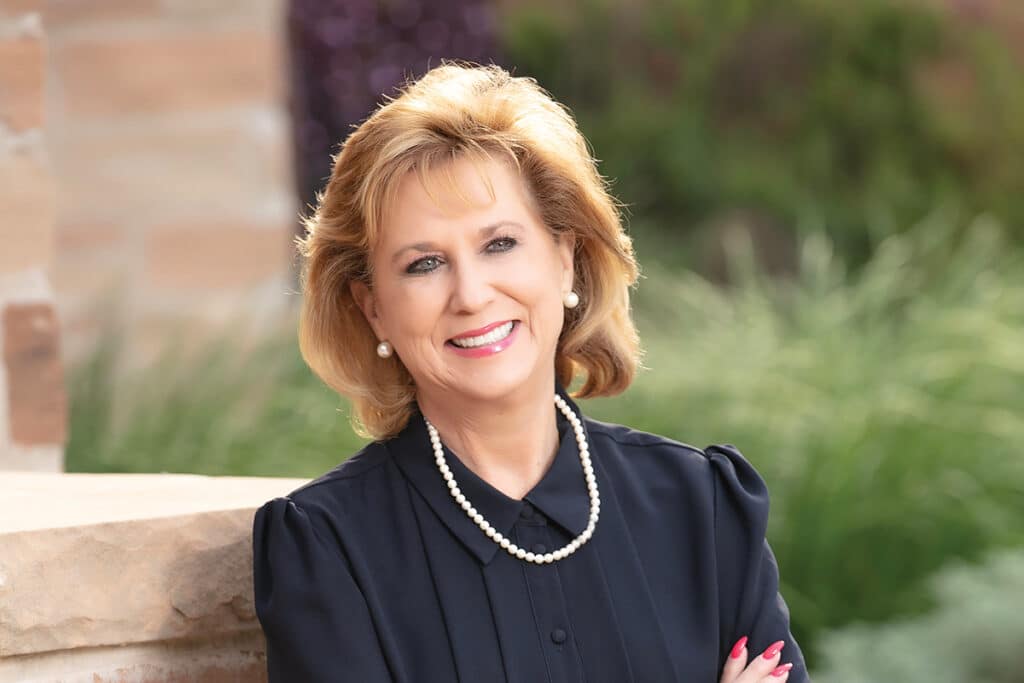Unlike firefighters, cowboys or ballerinas, Sharon Sanchez doesn’t have a high-concept job. “When I tell people I do grant writing, they think: ‘Cool! Can you get me a car loan?’” she says with a smile. “Nobody understands what I do.” Actually, it’s easier said than done: As director of grants and recognition for North Side Independent School District (NISD), Sanchez and her staff of nine apply for funding for educational programs from federal entitlement programs, foundations and corporations. They also nominate district staff for awards recognizing excellence in teachers, administrators and schools. At any one time, they may have 10 to 15 grant applications in progress. In recent years, as funding grew scarce, the process has become highly competitive. Sanchez keeps an eye on all the projects her department is working on, oversees the district’s North Side Foundation fundraising arm, conducts training and still does grant writing of her own. There is no slow season. “I wish there was a downtime,” she says. “As the district grows, our needs have grown. We’re busy all year-round.”
Sanchez and her staff “have to live for the deadline,” she says. “Everybody stays late or takes work home. We do what we have to do to get the job done, even if that means evening hours or weekends.” No one, she acknowledges, grows up wanting to be a grant writer, at least not consciously. “I just kind of fell into it,” says Sanchez, who grew up wanting to be a writer and an attorney. A graduate of Incarnate Word High School, she earned a bachelor’s degree in political science from the University of Texas at San Antonio. Instead of going on to law school, one of her political science professors, Richard Gambitta, Ph.D., steered her into graduate school, a move that put her on track for a career in public service. “I wanted my life to have meaning,” says Sanchez, “doing something I could feel good about.” After earning a master’s in public administration, also from UTSA, she worked in a variety of public-sector jobs, in the Bexar County District Attorney’s office, in the county corrections department and at the San Antonio Housing Authority. Sanchez applied for a grant writer position and didn’t get it but was offered a different job, evaluating programs within the housing authority.
“I started working on grants on the back end,” Sanchez says. That experience turned out to be excellent training for grant writing, as she learned to think analytically about how programs were marketed to the residents and how they benefited from them. Also, during the late 1990s, she says, “There was funding everywhere, and people were doing innovative things. It was inspiring.” Twelve years ago, she moved to North Side, starting as a grants project manager. In 2004, she was promoted to her present job, in which she leads the department that manages grants and recognition for the entire school district — San Antonio’s largest and the fourth-largest in Texas. “Everybody does everything,” she says of her close-knit team. “You don’t ever write a grant all by yourself; you’re working collaboratively with other people.” Despite her administrative responsibilities, Sanchez still writes some grant applications: “It’s a skill you have to keep up.” Yet even after 15 years of experience, she doesn’t claim to have found a magic formula to win funding. “I’m still learning,” she says. “The great thing about this job is that it’s always a challenge. There’s always something new.” Earlier, it was the norm for applications to be submitted on paper, mailed or delivered by hand; in the last few years, it has become the norm to submit online.
“We’re transitioning,” Sanchez says. She and her staff subscribe to email listservs to learn about new sources of funding, and they’re adjusting to the different demands of electronic grant writing. “Before, (in paper applications), we could include graphics and pictures. Now we have to make the text do all the work.” To avoid delays when overburdened systems crash, they’ve learned to submit online applications a day ahead of time. Some things, however, don’t change. No matter how the application is submitted, she says, “You have to tell a good story.” It’s also important to “speak the same language as the funding agency” and to write clearly: “Never assume that (the funder) knows who you are and what you do.” One of the key messages Sanchez and her staff have to communicate is that 52 percent of the students North Side serves are economically disadvantaged. “Our demographics are changing, and funding is dwindling,” she says. “We have to change the perception (of North Side as a wealthy district) and convey a need.” Even when a grant and its funding agency seem like a good match for a worthy program, there are disappointments. “Sometimes you’re going to get accepted, and sometimes you’re going to get turned down,” says Sanchez. “To do this kind of work, you have to enjoy writing, you have to be competitive, and you have to be resilient.” Knowing that jobs and programs depend on the outcome of grant applications “keeps you up nights,” she says. “Everybody here is aware of that. If an application to fund an after-school program isn’t successful, those children will have nowhere to go. It weighs heavily on you.” All of the school-age children of Sanchez and her staff attend North Side schools. “You have to have a belief in what you’re doing, that it’s going to have an impact on someone,” she says. “Of all the qualities for effective grant writing, I would rank that at the top. That belief — that a program is going to benefit kids at a school and families in that area — is what’s going to drive you when you’re tired, when you want to be somewhere else, when you just don’t want to do it anymore.”
Her children — Lauren, age 9, and Olivia, 5 — both attend Leon Springs Elementary School, which presents an annual talent show. “I’ve missed it every year,” Sanchez says regretfully. “It’s always in May, during the day, when I can’t take off because we have a lot of deadlines that month.” Recently, she had to attend a district retreat and missed a softball game in which her elder daughter made two outs and got a hit that brought in two runs. “My husband was texting me the play-by-play, but it was rough,” she says. “You want to be there and see it for yourself.” Fortunately, her husband, Leroy Sanchez, owns his own business, so his schedule is more flexible. “I’m learning how to balance,” she says. Because she lives in and works for her children’s school district, she says, “I feel I’m supporting my own family through what I do.” When she visits a grant-funded program or sees a teacher win an award, says Sanchez, “I feel I had a part in that. I’m proud to say I work for North Side. I work with great people, in my department and everywhere else. This is it for me.”
SHARON SANCHEZ
Age: 39
Occupation: Director of grants and recognition, North Side Independent School District
Personal: Married to Leroy Sanchez, an insurance agency owner, with two daughters, Lauren, age 9, and Olivia, 5, and Triton, the family’s miniature schnauzer
Goals: To earn a Ph.D. in education
Why she’s a role model: Brings passion and commitment to the challenge of funding educational programs
Her own role model: Her mother, Carolyn Guajardo, who worked as a travel agent when her children were young. “She chose a job with hours from 8:30 a.m. to 3:30 p.m.; when I was in (after-school) sports, she was always there. I didn’t realize all the sacrifices she made until I had kids.”
Best advice ever given: From her late grandfather, Bennie Matta — “In life, you must be like a palm tree that stands firm in the calm and bends in the wind but never breaks.”
Believes that… “God creates your path for you, and you have to have faith that everything’s going to work out”
People would be surprised that I … “Completed the San Antonio Rock ‘n’ Roll Marathon, a gladiator run (with an obstacle course) and a minitriathlon. Running is a major stress reliever for me.”
What she’s reading: “I’m reading three books. One is for fun, A Game of Thrones, (by George R.R. Martin); one is for work, Juggling Elephants: An Easier Way to Get Your Most important Things Done – Now! (by Jones Loflin and Todd Musig); and one is for self-improvement, The Happiness Project, (by Gretchen Rubin).




